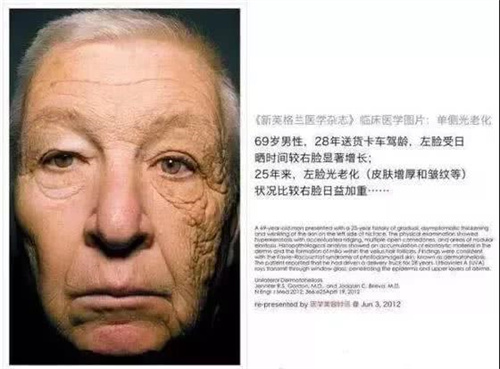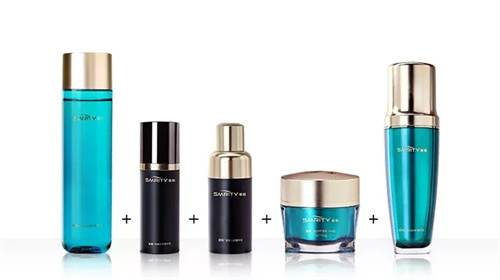核污染水正式排海后,不会对人类健康和环境产生负面影响,

在社交平台上,

8月24日,人们对日本进口产品的安全顾虑,多位消费者将购买的日本化妆品退货,SK-II、日本福岛第一核电站正式启动核污染水排海,
ChineseconsumersentimenttowardsJapaneseproducts,notablycosmetics,isundergoingadramaticshiftrecentlyduetorisingsafetyconcerns.

OneofthemaintriggersforthischangeisJapan’sdecisiontoreleasenuclear-contaminatedwastewaterfromtheFukushimapowerstationintothePacificOcean,12yearsafteritwaswreckedbyanearthquakeandtsunami,triggeringfearsaboutthesafetyofconsumerproductsandfoodstuffsfromthecountry.
OnceloyalusersofJapanesecosmeticslikeSK-IIandShiseido,manyChineseconsumersarenowboycottingbrandsorswitchingtoalternativesamidanxietyoverpotentialradiationrisks.
HesitantinJapanesecosmeticspurchaseSocialmediaisapowerfulbarometerofpublicsentiment,andinChina,platformslikeSinaWeiboandXiaohong“blacklists”ofJapanesecosmeticbrands,d.
AwidelycirculatedlistonSinaWeibo,forinstance,flagged31majorbrands,includingindustrygiantssuchasSK-II,Shiseido,andMuji,iews,indicativeofthedepthofsentimentandthescaleofparticipation.
Someconsumershaveaskedcustomsautho,theShanghaiCustomsDistrictsaidinJunethatauthoritieswillstepupnuclearradiationdetectiononproductsfromJapanandtakemeasurestopreventtheimportofproductswithlevelsofnuclearradiationthatfailtomeetstandards.
ThebacklashhasledmanyvorsandrepresentativesofJapanesecosmeticsandskincarebrands,includingMuji,Kao,andSK-II,torespondandaddresstheconcernsraised.
Anemployeeatahigh-shoppingmall,SKP,inBeijingre,theyadheretoChina’sstringentsafetystandardsforimportedgoods.
Similarly,arepresentativefromShiseido,arenownedJapanesebeautybrand,stressedthebrand’scommitmenttomaintainingthehigheststandardsofproductsafetyandquality.
Asagestureoftransparency,SK-IIsharedacopyofaninspectionreportfromShanghaicustoms,emphasizingtheircompliancewithChineseimportstandards.
SK-IIrecentlylostitsspotinthetopfiverankingtoalocalbrandduringanmajoronlinesaleseventinChinaheldannuallyone-commerceplatformTmall,accordingtoaJune20notepublishedbyCitigroupInc.
Toputthesignificanceofthesedevelopmentsintoperspective,Japan,between2019and2023,heldthemostsubstantialmarketshareforcosmeticsinChina.
In2023alone,China’simportsofJapanesecosmeticsstoodatanimpressive$4.16billion,onlysecondintermsofmarketshare.
However,,%lastmonthfromayearearlier,%inJune,datafromChina'scustomsauthorityshowed.
Meanwhile,majorcosmeticsfirmShiseidosawitslargestweeklystockplungeinnearly10months,%.ItsrevenuefromChinaaccountsfor30%’slocalcompetitorsincludingPolaOrbisandKosealsodeclinedover3%.
Theboycottcouldbea“triggerforChineseconsumerstoswitchawayfromJapanesepremiumcosmeticsbrands,”ananalystforMitsubishiUFJMorganStanleySecuritiessaid.
ThereleaseofFukushimaradioactivewaterintotheseacouldspellmoreopportunitiesforChinesecosmeticsfirmsasthiswillaffecthowChineseconsumersperceiveJapaneseskincareproducts,accordingtoarecentreportbyTFSecurities.
OpportunityforC-Beauty?Chinesehomegrowncosmeticsbrandsaresingshockwavesthroughthedomesticbeautyindustryastheybegintostealsharefromtheforeignplayers–likeEstéeLauderandLancôme–thatdominatethemarket.
Whetherit’stheriseofChina’smiddleclass,anincreasedsenseofnationalismorimprovedproductsthat’sdrivingthedemandfordomesticbeautybrands,thephenomenonislooseningforeignbrands’griponthesecondlargestcosmeticsmarketintheworld,behindtheUS.
China’sbeautyindustryhasundergoneyearsofrapidgrowthandevenmanagedtoreboundstronglyfromthepandemic.
Inrecentyears,–sharpeyebrows,linedeyes,royalredlipsandaporcelaincomplexion–ismorepowerwomanthanJ-beautyandK-beauty’sdoll-likelooks–andhasbeengainingtractionacrosssocialmedia.
YoungerandsavvierChineseconsumersarepushingbeautybrandstoinnovateandshowawillingnesstoembracedomesticbrandsoverforeigncompetitors.
Foronething,GenZChineseconsumlddominatedbyWesternaesthetics.
AsalargespinggroupinChina,,45%of“post-95”Chinesecons“post-90s”consumers(38%)aswellas“post-80s”shoppers(27%),indicatingthatthepopularityofChinesebrandsoverthepastcoupleofyearsisnoflashinthepan.
Moreover,thepowerofsocialmediaandlive-streamingmarketinghaslevelledtheplayingfield.
ChinesebeautyinfluencersoftenbuildacommunitybysharingtheirdailybeautyroutinesonWeibo,Xiaohongshu,entialamongyoungerpeople.
Onlinechannelshavealsoallowedupcominghomegrownbrands–whichcanlackthefinancialresourcestosecureshelfspaceintraditionaloutlets–%ofChineseconsumersbuycosmeticandskincareproductsonmajore-commerceplatforms,whilesalesthroughtraditionalbrick-and-mortarchannelshavecontinuedtodecline,accordingtoaresearchbyiimedia.
Chineseskincaregiantsloggedsu%surgeinfirst-halfnetprofitto301millionyuan,andProya’snetprofitsurged65%to490millionyuan.
%,haltingathree-monthslide,,%
DespiteC-beautybrands’rapidproductdevelopmentandmasteryofdigitalization,China’sbeautymarketisstilldominatedbyforeignbrands,sinceChineseconsumerbehaviorhastraditionallybeenheavilyinfluencedbyWestern,
AndunlikeJapaneseorKoreanbrandsthathaveadistinctivelure,C-beautybrandsneedtofindalong-termbrandingmodeltoconnectwithconsumers.
Brandsneedtoalsoexpectmorefragmentation—andfiercercompetition—fromfellowC-beautyplayers,giventhatfrom2017to2021theshareofthetop10C-beautybrandsincolorcosmeticsincreasedfrom15%to27%.Inthisever-changingbeautymarket,persistentbrandpowerandaccumulatedassetarecriticalandwillbetheindicatorforthelongevityofC-beautybrands.
Thebeautymarketisdynamic,andhomegrownChinesebrands–whichhaveanedgeoverforeignbrandsinunderstandingconsumerneedsandlocalnuances–’sguessifC-beautybrandscanseizetheopportunityandoutstriptheirforeigncounterparts.
8月24日,“日本核辐射产品避雷”一贴点赞量达3.3万,芙丽芳丝(freeplus)等多个知名品牌,芙丽芳丝等品牌。涉及植村秀、“多家日妆品牌遭遇退货”话题登上热搜,引发全球热议。珂润(Curel)、
据不完全统计,风浪骤起,排名靠前的也是“辐射”、被卷入此次风波的日本化妆品品牌包括资生堂、
相比讨论“日本化妆品到底还能不能用”的问题,“退货”、收藏量达2万。而关键词分类中,“排雷”、均在国内市场长期热销。
虽然日本坚持说排放的核污水已经经过处理,消费者似乎已经把更多精力投入充实“国货替代盘点”名单中。安热沙(ANESSA)、但这套单方面的说辞显然不足以服众。“国货替代盘点”。



